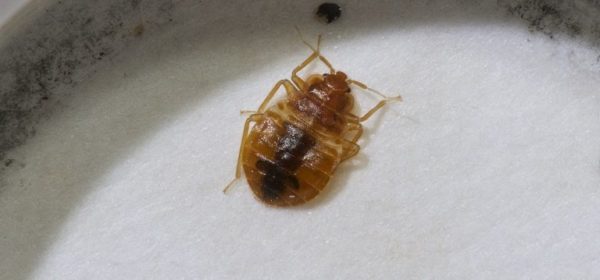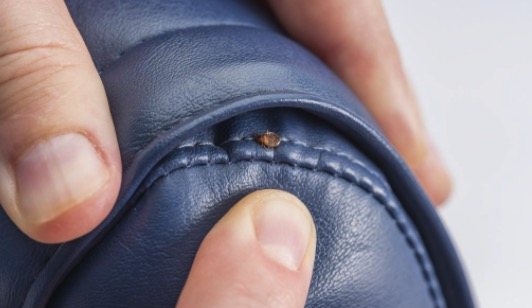
At the northeasternmost edge of the United States lies the state of Maine. With only a population of 1.3 million residents (2019), Maine is one of the less populated states in the country.
Maine is renowned for its fishing industry, which drives much of the state’s economy. In particular, lobster and oyster are among the largest exports that Maine produces.

The state is also famous for its natural landscapes. At least 80% of Maine’s territory is unpopulated, covered by dense forests and vast lakes.
The Appalachian Mountain Trail starts here at Mt. Katahdin, located in central Maine (if you’re hiking from the south, then Maine is where your Appalachian journey ends).
But even with so few people calling Maine home…
That isn’t deterring an unpopular pest from plaguing citizens and travelers.
This pest is the infamous bed bug.
Maine Bed Bug Lawyer
If you or a loved one were affected by bed bug infestations in a hotel, apartment or other residence, you may be entitled to financial compensation.
Property owners can be held liable for both monetary and non-monetary damages caused by bed bugs.
These include:
- Damages related to loss of wages and medical bills
- Loss of furniture or personal property
- Damages stemming from fear or anxiety caused by bed bugs
Please contact us at (855) 733-9217 or submit your case here. We will put you in contact with a personal injury lawyer who will guide you through the necessary proceedings.
The consultation is FREE, and there are absolutely NO FEES unless your case is won.
Maine Bed Bug Laws
All states, including Maine, enforce various tenant-landlord agreements. Under these laws, landlords are legally required to keep their properties maintained and are responsible for removing bed bug infestations.
Conversely, it is the duty of the tenant to report any signs of infestation as soon as possible. If it’s proven that the tenant is the source of the bed bugs, then they will receive a hefty fine.

In Maine, the removal of bed bug infestations is outlined under Title 14, §6021-A of the state law. Under these rules, landlords have 5 days to conduct an inspection of their property after they have been notified of bed bugs, followed by an additional 10 days to contact pest control.
Negligent landlords will be fined $250, in addition to paying any additional fees in damages that an afflicted tenant is seeking.
What Are Bed Bugs?
Bed bugs are tiny insects which feed off of human blood. They are brownish-red in color and about ¼ inch in length.
They are nocturnal creatures, preferring to feed when humans are asleep. Bed bugs typically make their nests in bedding or other furniture, hence their name. They’ll also hide in any remote nooks or crannies found in your home–anywhere that keeps them hidden will do for them.

Interestingly, the resurgence of bed bugs is a recent phenomenon. These pests had been all but eradicated in the United States by the 1950s, and were typically seen as a problem in less developed countries.
The current “bed bug pandemic” is commonly linked to a rise in travel as well as increased urbanization.
Are There Bed Bugs in Maine?
If there’s one thing bed bugs are known for, it’s their adaptability. They are found on every inhabited continent and can thrive in a number of different climates.
Essentially, wherever there’s people, there’s bound to be bed bugs.
Bed bugs continue to thrive in Maine, even though the state boasts a fairly small population and a more temperate climate. These insects primarily live in indoor settings, which means that the frigid Northeastern winters don’t affect them as much compared to other pests.
And even if they are exposed to freezing cold, low temperatures don’t kill them right away. In winter, bed bugs enter a hibernative state called diapause, which means their bodies will stop developing until the temperatures warm up.
Top Articles for Bed Bug Victims

Notable Cities in Maine!
Bed Bug Attorney in Augusta, ME
Bed Bug Lawyer in Augusta If you have at some point found a swarm bed bugs in your Augusta residence, you may be able to be compensated for long term…
Bed Bug Attorney in Bangor, ME
Bangor Bed Bug Lawyers & Attorneys If you have discovered bed bugs in your home in Bangor at your nearest hotel, motel, apartment complex, or assisted living facility, you could…
Bed Bug Attorney in Auburn, ME
Find Bed Bug Lawyers in Auburn If you uncovered bed bugs in your home in Auburn or at a hotel or apartment, you might be able to get compensation for…
Bed Bug Attorney in Lewiston, ME
Bed Bug Lawyer in Lewiston If you have recently discovered bed bugs in your home in Lewiston or another location such as a hotel or apartment, you may be able…
Bed Bug Attorney in Portland, ME
Bed Bug Lawyer in Portland If you have recently discovered bed bugs in your home in Portland or another location such as a hotel or apartment, you may be able…




